Modernizing Web Apps with Azure App Service: Success Stories
Hello Everyone! Welcome back from ARTIFICALAB LTD! Today, we will be talking about modernizing web applications with the new feature of Microsoft Azure Cloud: the Azure App Service!
Indeed, Azure App Service can offer a fully managed environment for building, deploying, and scaling web apps, as well as supporting numerous programming languages and frameworks.
The best part of Azure App Service is such that it has the capabilities to perform auto-scaling, load balancing, and seamless integration with other Azure service. In this article, we will explore the success stories of various industries that have leveraged Azure App Service to enhance performance, security, and operational efficiency.

"Traditionally, web developers have to setup their own deployment environment in a private server, with complex setup technical requirements. Not only that, scaling up and scaling out resources could come with huge challenges too. However, with the introduction of Azure App Service, developers can now easily setup their web apps in Azure App Service Plan, choosing the perfect App Plan Pricing Tiers, as well as considering for scalability, SSL offloading and high availability issues. Web Apps become more secured than ever, even in the face of major cyberattacks and disasters!"
— Mr. Thu Ta Naing, Founder & CEO (ARTIFICALAB LTD)
Concepts of Azure App Service
Before we start discussing about the success stories of businesses with Azure App Service, we first need to understand the concepts of Azure App Service and its mechanisms. So let's explore as below:
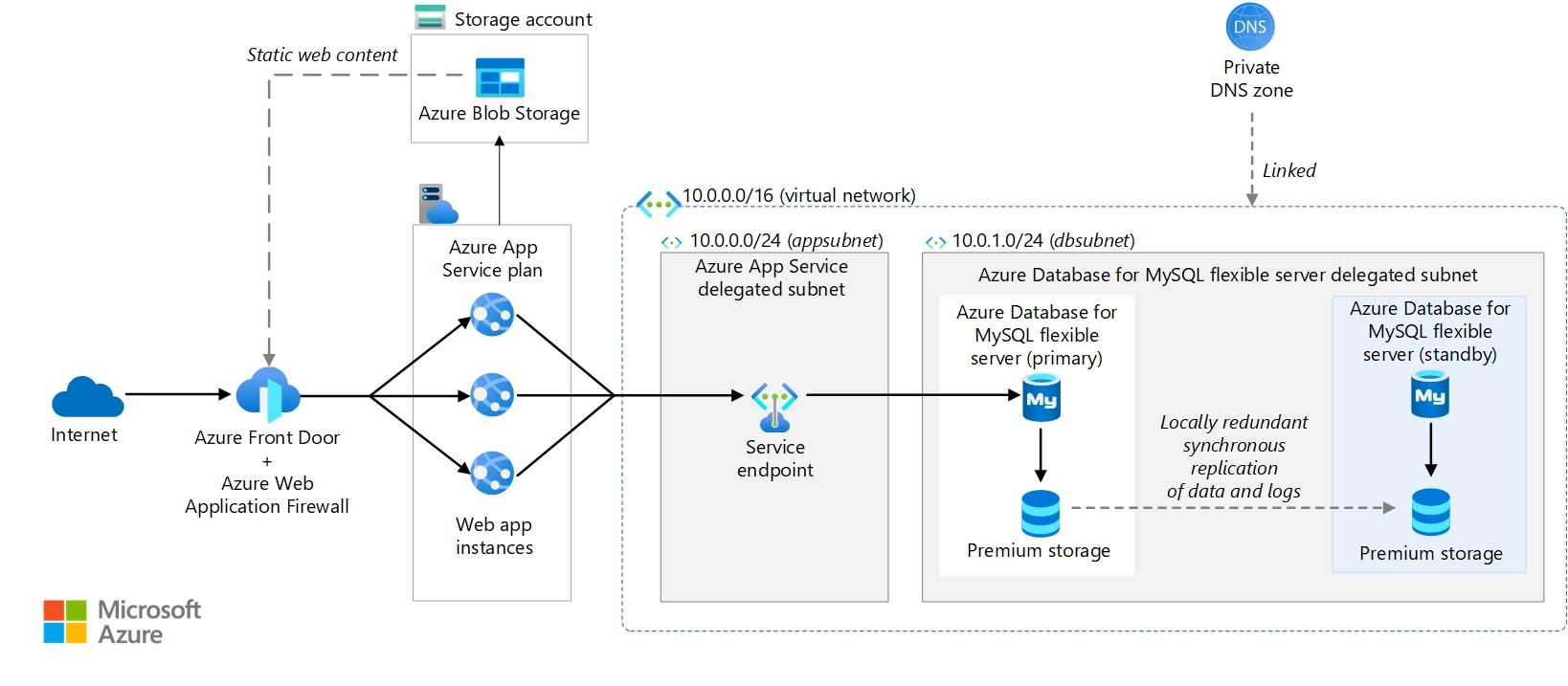
Figure: Wordpress on Azure App Service, Image courtesy of Microsoft Azure
App Service Plan:
This is the first concept you need to know. Indeed, it defines the region, features, and scaling options for your web apps. It determines the compute resources available to your app. You can choose from various pricing tiers based on your needs.
If you are a new learner in Azure Cloud, you need to keep in mind that the Azure App Service Plan includes the following:
- Operating System (Windows, or Linux)
- Region (West US, East US, etc.)
- Number of VM instances for your plan
- Size of VM instances (Small, Medium, Large)
- Pricing tier (Free, Shared, Basic, Standard, Premium, PremiumV2, PremiumV3, Isolated, IsolatedV2)
Scaling:
Azure App Service offers both manual and automatic scaling options. You can scale up (increase the size of your instances) or scale out (increase the number of instances) to handle varying loads.
To understand about this concepts a little bit more, we have attached the following figures for your reference!
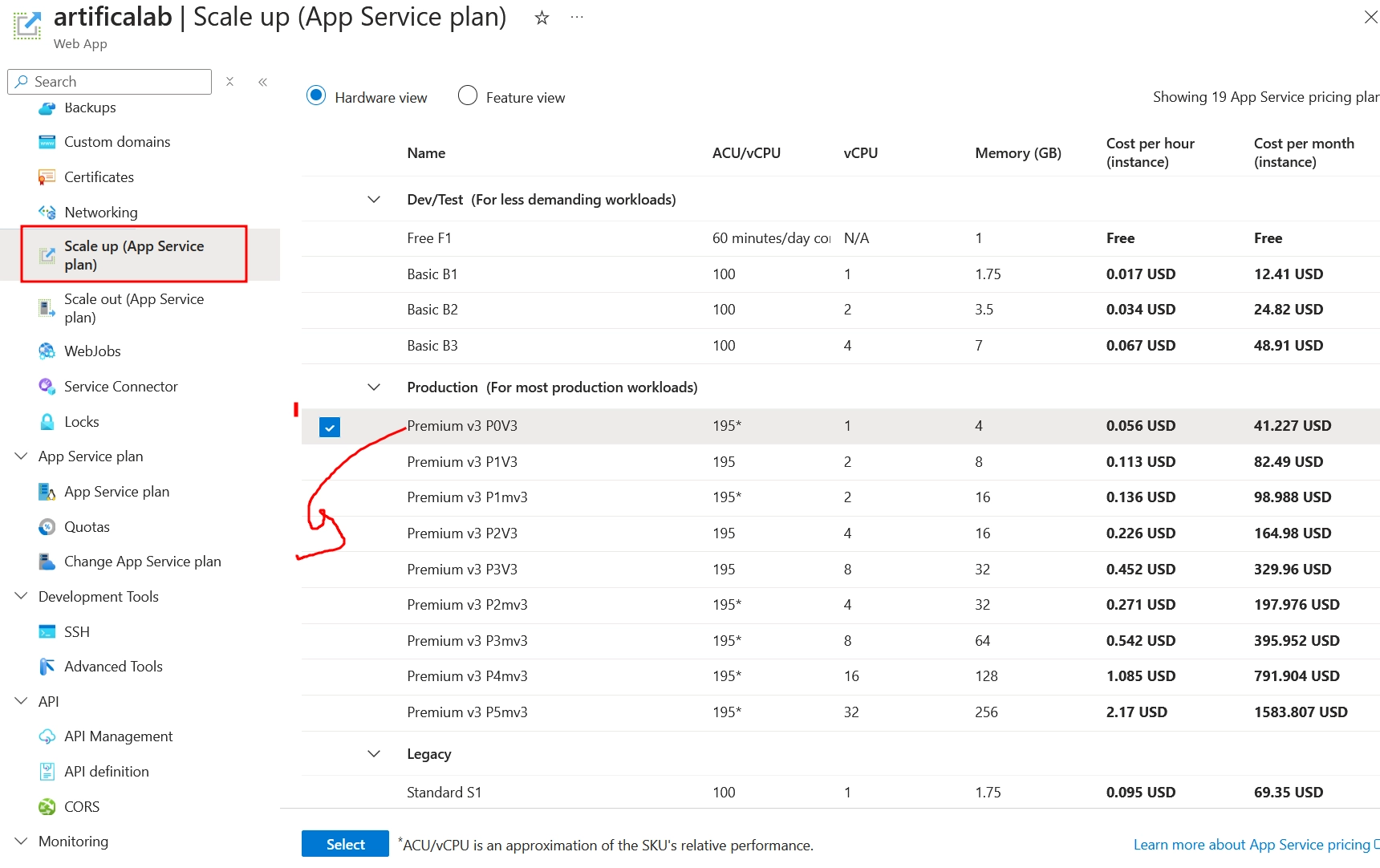
Figure: Scale up in Azure App Service, Image courtesy of Microsoft Azure
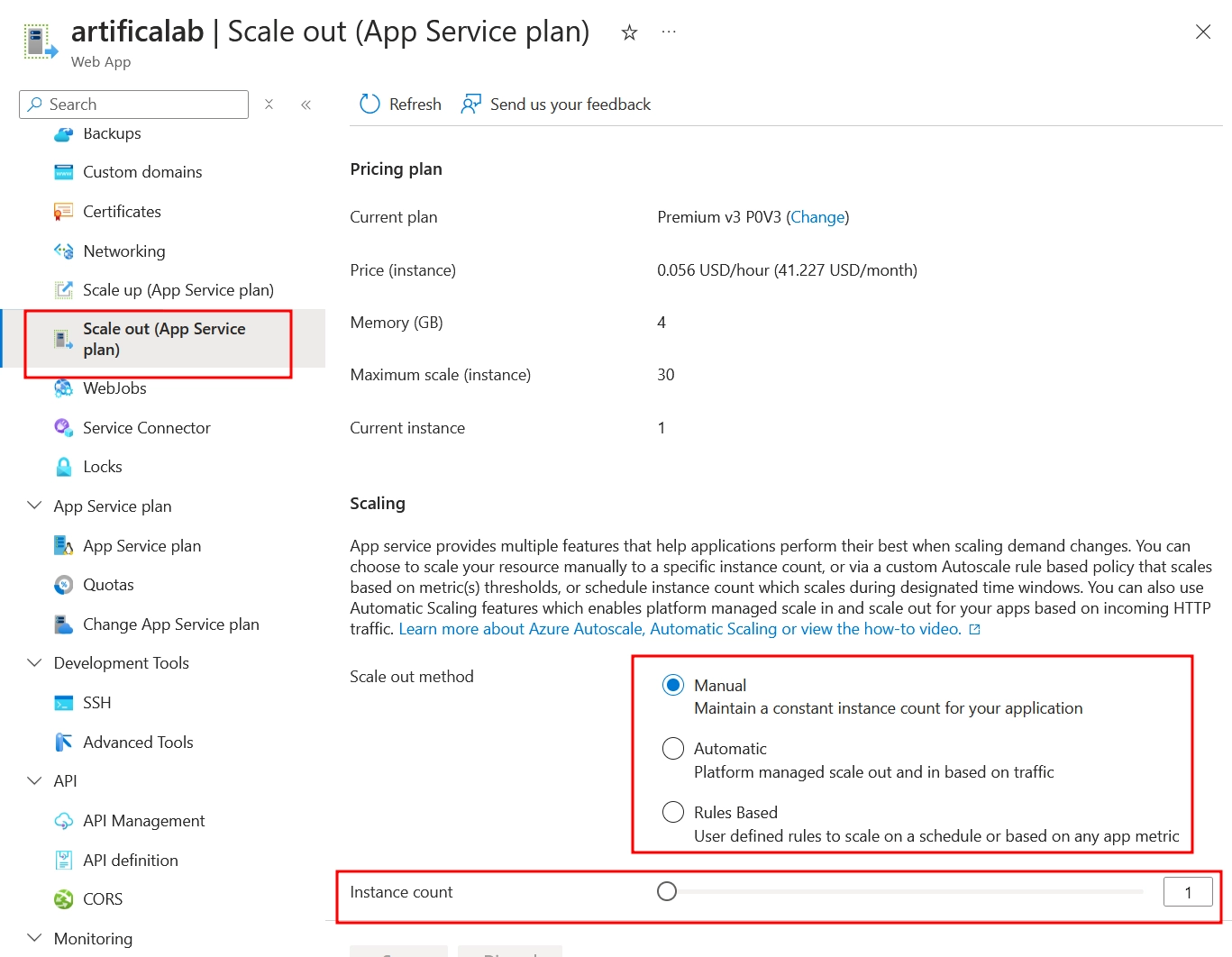
Figure: Scale out in Azure App Service, Image courtesy of Microsoft Azure
Deployment Slots:
These allow you to create different environments (e.g., staging, production) for your web app. You can swap slots without downtime, making it easier to test and deploy updates.
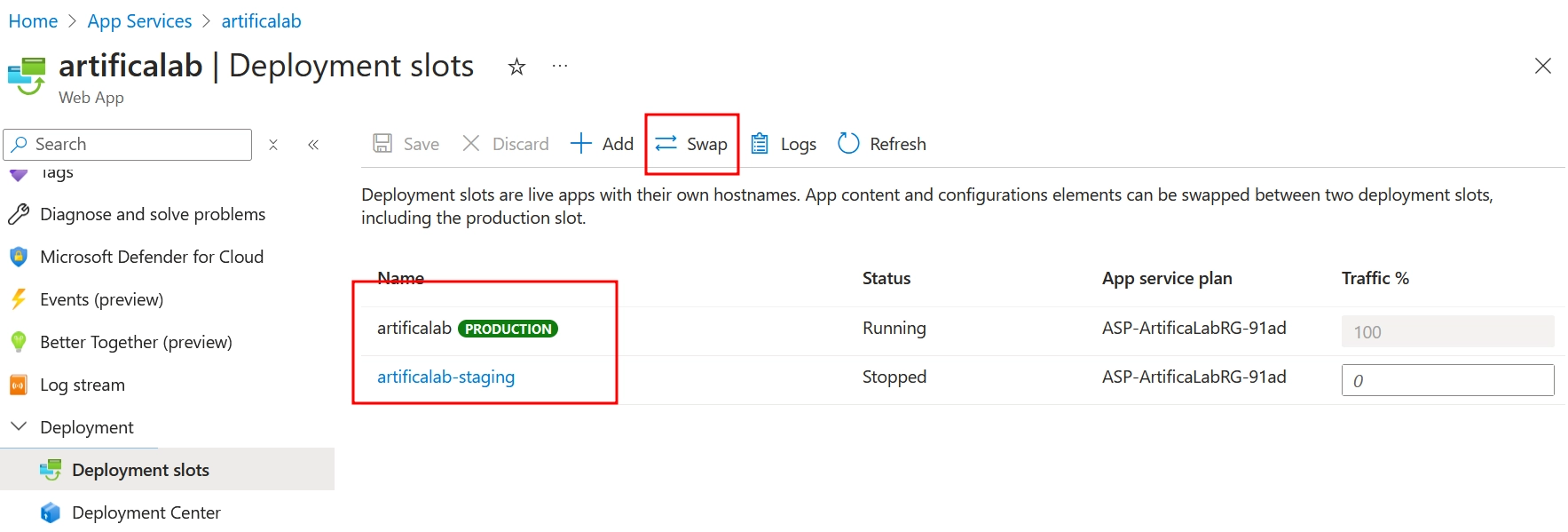
Figure: Deployment slots in Azure App Service, Image courtesy of Microsoft Azure
Custom Domains and SSL:
You can configure custom domains and secure your web apps with SSL/TLS certificates.
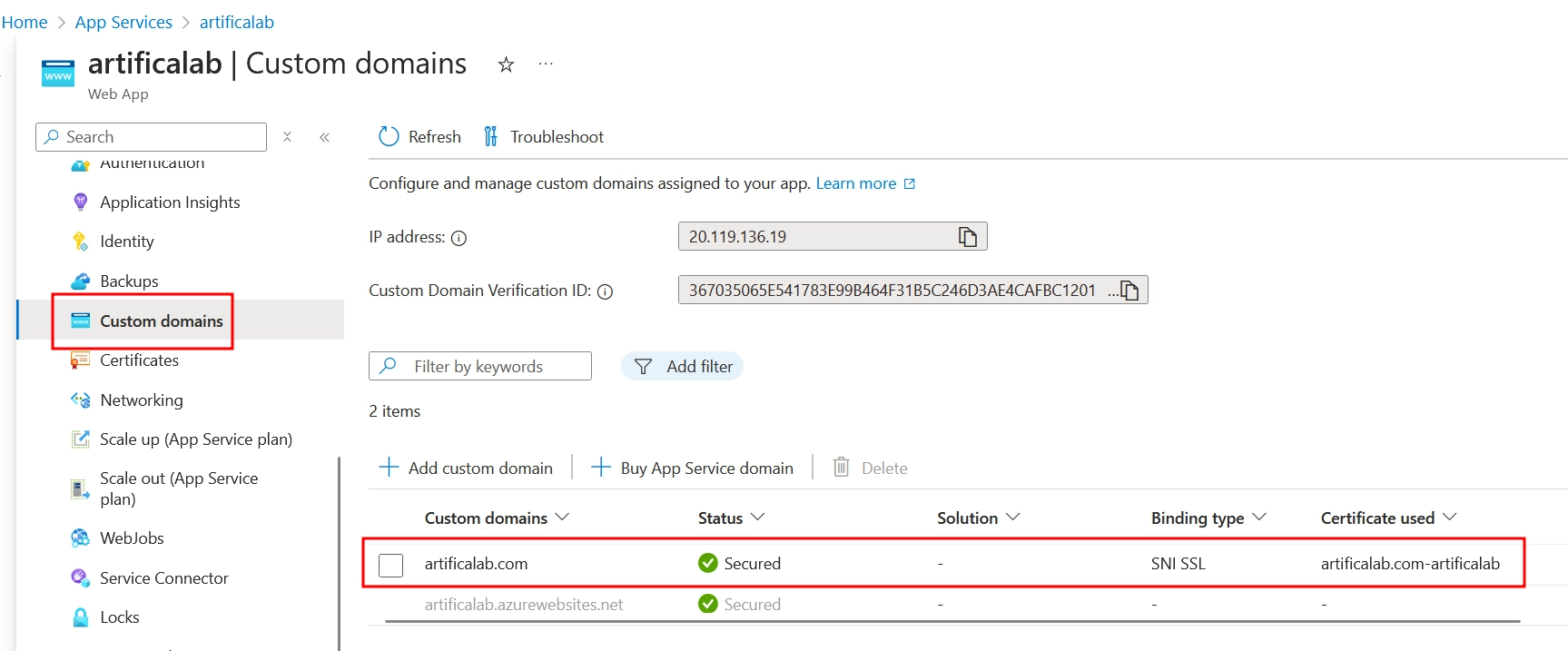
Figure: Custom Domains in Azure App Service, Image courtesy of Microsoft Azure
Continuous Integration and Deployment (CI/CD):
Azure App Service integrates with popular CI/CD tools like GitHub, Azure DevOps, and Bitbucket, enabling automated deployment workflows.
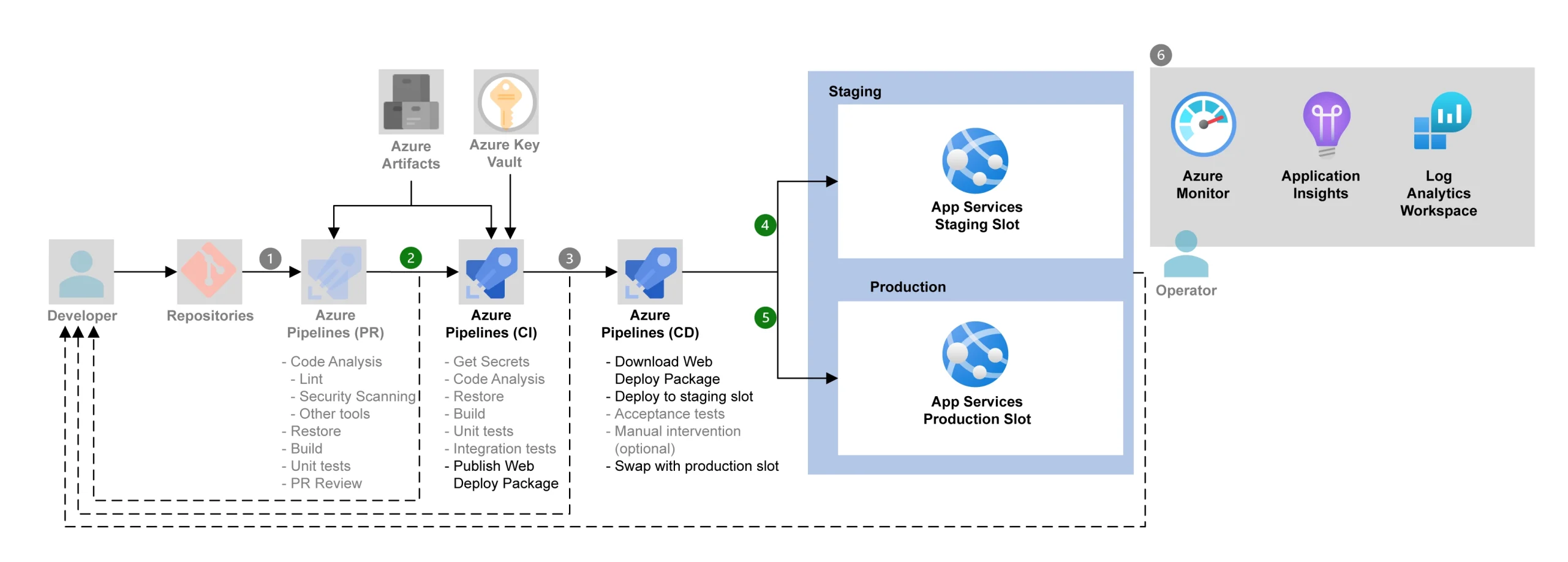
Figure: CI/CD integration in Azure App Service, Image courtesy of Microsoft Azure
Azure App Service Plans that you should know!
Referencing from Microsoft official documentation, we have shared a range of pricing tiers that are available on the Azure App Service Platform.
Free and Shared Plans:
These are intended for trials, experimentation, and learning. They run on shared resources and are not recommended for production workloads.
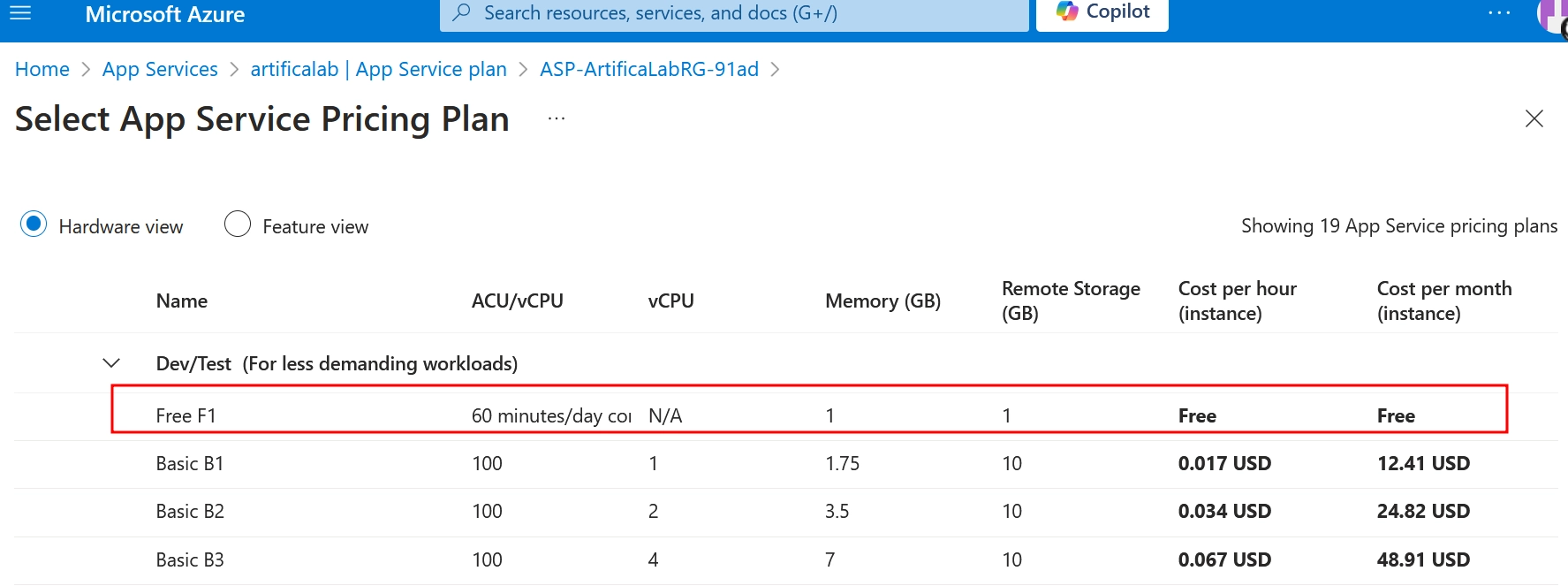
Figure: Free Plan on Azure App Service, Image courtesy of Microsoft Azure
Basic Plan:
Suitable for small-scale applications, this plan offers dedicated resources and basic features.

Figure: Basic Plan on Azure App Service, Image courtesy of Microsoft Azure
Standard Plan:
This plan includes more advanced features like auto-scaling, daily backups, and custom domains. It is ideal for production workloads.

Figure: Standard Plan on Azure App Service, Image courtesy of Microsoft Azure
Premium Plan:
Designed for high-traffic applications, the Premium plan offers enhanced performance, additional scaling options, and advanced features like isolated environments.
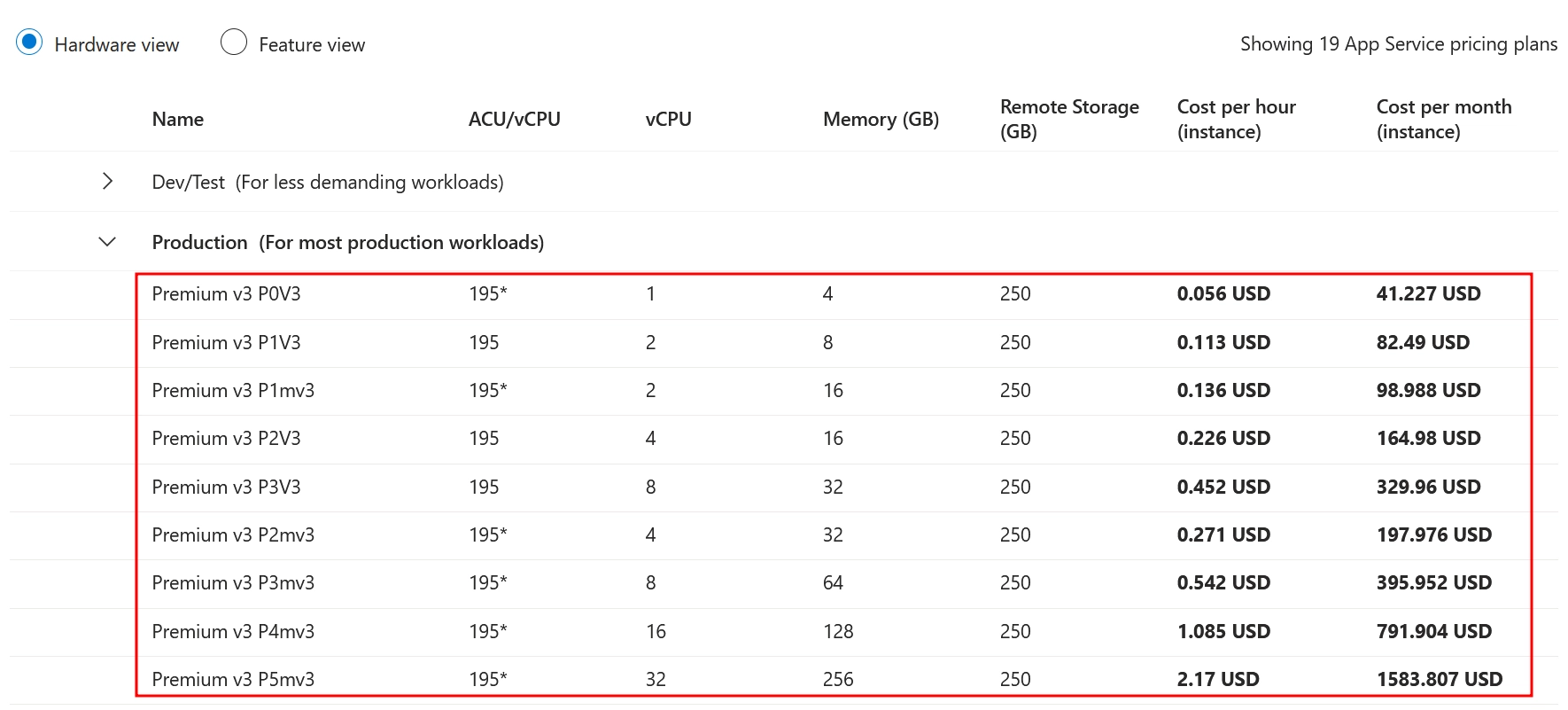
Figure: Premium Plan on Azure App Service, Image courtesy of Microsoft Azure
Isolated Plan:
This plan provides maximum isolation and security by running your apps on dedicated Azure Virtual Networks. It is suitable for mission-critical applications requiring high security and compliance.
Networking Architecture in Azure App Service
Azure App Service provides robust networking features to control inbound and outbound traffic:
Multi-Tenant Service:
Hosts App Service plans in Free, Shared, Basic, Standard, Premium, PremiumV2, and PremiumV3 pricing SKUs. These plans are hosted in a multi-tenant environment, meaning multiple customers share the same infrastructure.
Single-Tenant Service (App Service Environment - ASE):
Hosts Isolated SKU App Service plans directly in your Azure Virtual Network. This provides enhanced security and isolation, suitable for applications with stringent compliance requirements.
Networking Features in Azure App Service
Virtual Network Integration:
Allows your app to access resources in your Azure Virtual Network.

Figure: Virtual Network Integration on Azure App Service, Image courtesy of Microsoft Azure
Private Endpoints:
Enables secure access to your app over a private IP address within your virtual network.
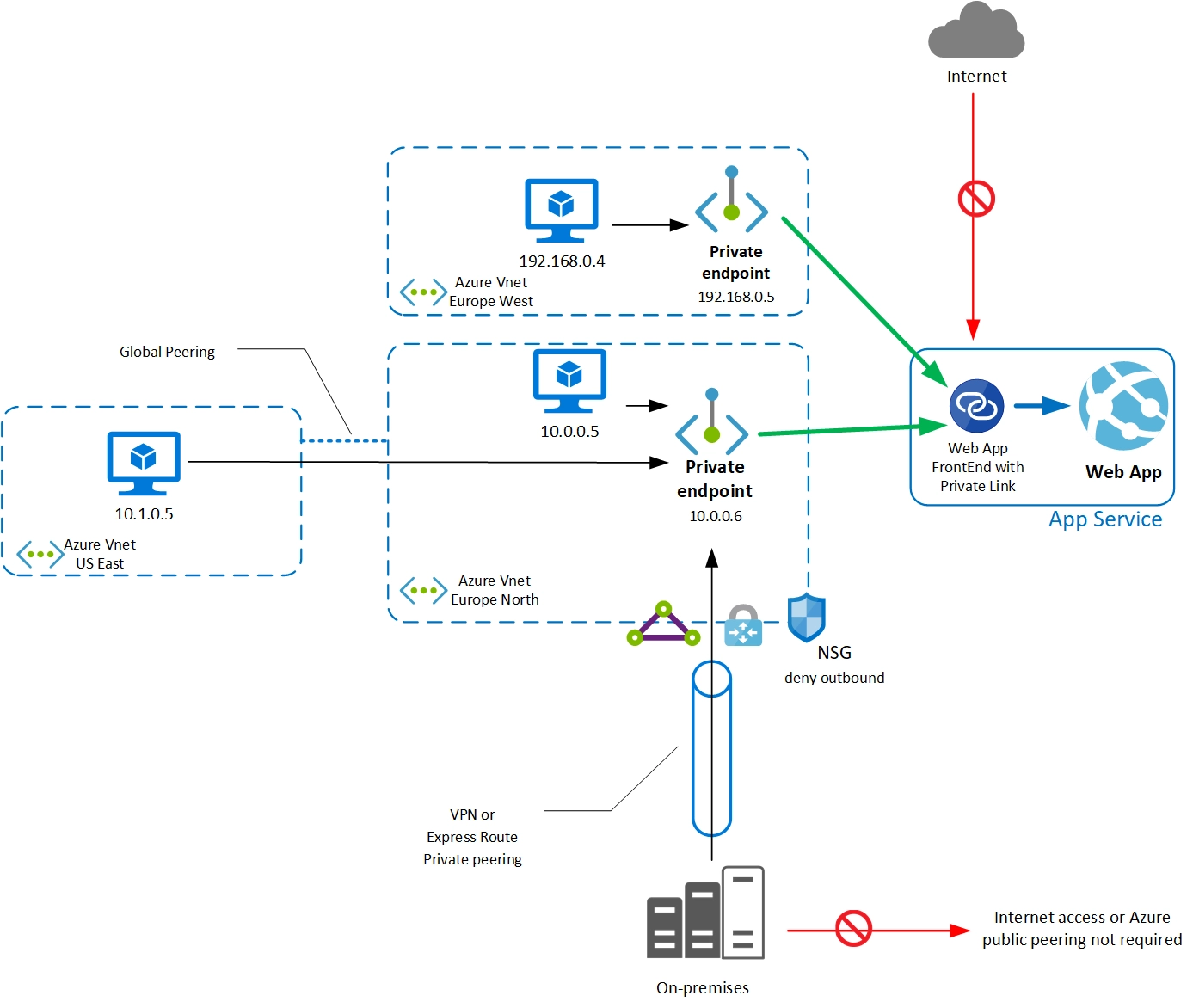
Figure: Private Endpoints on Azure App Service, Image courtesy of Microsoft Azure
Hybrid Connections:
Facilitates connectivity between your app and on-premises resources.
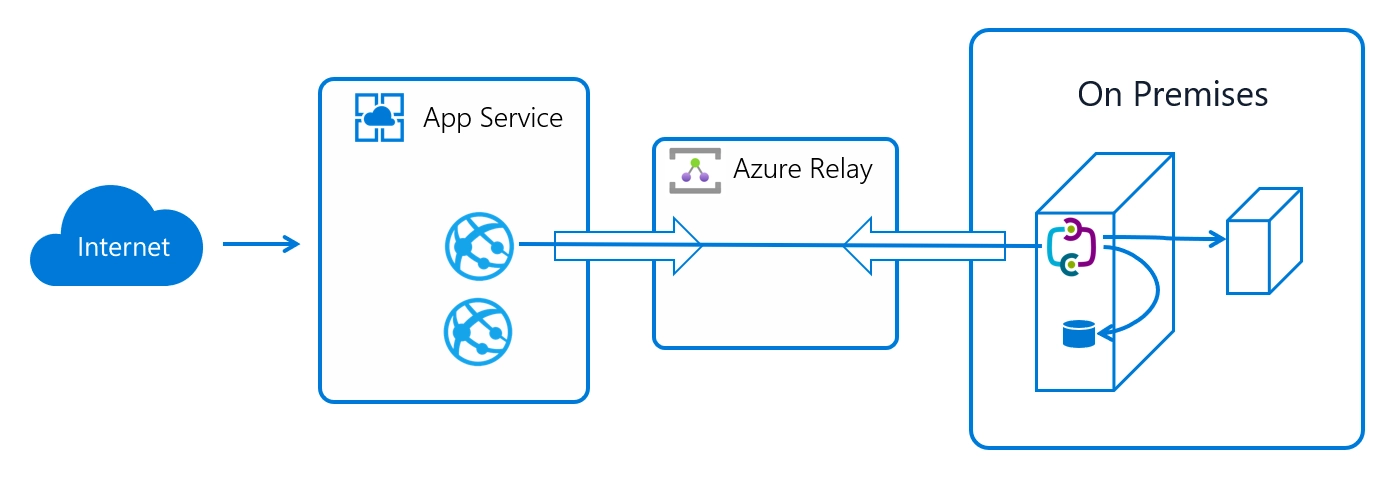
Figure: Azure App Service Hybrid Connections, Image courtesy of Microsoft Azure
Access Restrictions:
Allows you to define rules to restrict access to your app based on IP addresses or virtual network subnets.
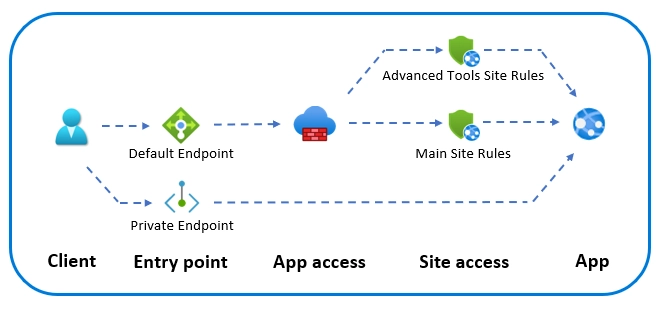
Figure: Access Restrictions in Azure App Service, Image courtesy of Microsoft Azure
Limitations in Azure App Service
While Azure App Service offers many benefits, it also has some limitations:
Resource Constraints:
Lower-tier plans (Free, Shared, Basic) have limited CPU and memory resources, which may not be sufficient for high-traffic or resource-intensive applications.
Cold Start Latency:
Apps may experience latency during cold starts, especially in lower-tier plans. This can affect the user experience if the app is not frequently accessed.
Limited Control:
As a PaaS offering, Azure App Service abstracts much of the underlying infrastructure, which can limit control over specific configurations and optimizations.
Networking Limitations:
While App Service provides robust networking features, there are still limitations in terms of network isolation and custom configurations compared to IaaS solutions.
Best Practices for Azure App Service
For Web App Developers, it is essential to have some knowledge about common best practices for deploying Web App on the Azure App Service.
Colocation:
Ensure that your web app and its associated resources (e.g., databases, storage) are in the same Azure region to reduce latency and avoid additional data transfer costs.
Certificate Pinning:
Avoid hard dependencies on default wildcard TLS certificates. Use custom domains and provide custom TLS certificates for applications that rely on certificate pinning.
Auto-Healing:
Configure auto-healing to automatically mitigate issues such as high memory or CPU usage. This can include actions like recycling the worker process or sending notifications.
Use Deployment Slots:
Deploy new builds to staging slots first to validate changes and perform smoke tests before swapping to production.
Monitor and Optimize:
Regularly monitor your app’s performance and resource usage. Use Azure Monitor and Application Insights to identify and address bottlenecks/
Success Case Studies with Azure App Service
Case Study 1: Transforming E-commerce Platforms
A leading e-commerce company faced challenges with performance and scalability due to increasing traffic and complex transactions. By migrating to Azure App Service, they achieved significant improvements:
- Performance: Leveraging Azure’s global data centers, the company reduced latency and improved page load times.
- Scalability: Auto-scaling features allowed the platform to handle peak traffic during sales events without downtime.
- Cost Efficiency: The pay-as-you-go model helped optimize costs by scaling resources based on demand
Case Study 2: Enhancing User Experience for a Financial Services Firm
A financial services firm aimed to enhance security and user experience for its online banking platform. Azure App Service provided the following benefits:
- Security: Built-in security features, such as SSL/TLS encryption and integration with Azure Active Directory, ensured robust protection of sensitive data.
- User Experience: Improved performance and reliability led to a smoother and more responsive user interface, enhancing customer satisfaction.
- Compliance: Azure’s compliance certifications helped the firm meet regulatory requirements effortlessly.
Case Study 3: Streamlining Operations for a Healthcare Provider
A healthcare provider sought to modernize its web applications to improve patient care and operational efficiency. Azure App Service played a crucial role in this transformation:
- Integration: Seamless integration with electronic health records (EHR) systems enabled real-time data access for healthcare professionals.
- Reliability: High availability and disaster recovery features ensured uninterrupted access to critical applications.
- Efficiency: Automated deployment and management reduced the time and effort required for application maintenance, allowing the IT team to focus on innovation.
Key Takeaways and Best Practices on Azure App Service
From these success stories, several key takeaways and best practices emerge:
- Leverage Auto-Scaling: Utilize auto-scaling to handle varying traffic loads efficiently.
- Enhance Security: Implement built-in security features and integrate with Azure Active Directory for robust protection.
- Optimize Costs: Take advantage of the pay-as-you-go model to manage costs effectively.
- Ensure Compliance: Use Azure’s compliance certifications to meet industry regulations.
- Focus on Integration: Seamlessly integrate with other systems to enhance functionality and efficiency.
CONCLUSION
Azure App Service has proven to be a powerful platform for modernizing web applications across various industries. Its comprehensive features, including scalability, security, and integration capabilities, have enabled businesses to transform their operations and deliver exceptional user experiences. As technology continues to evolve, Azure App Service will remain a key player in the future of web application development.






